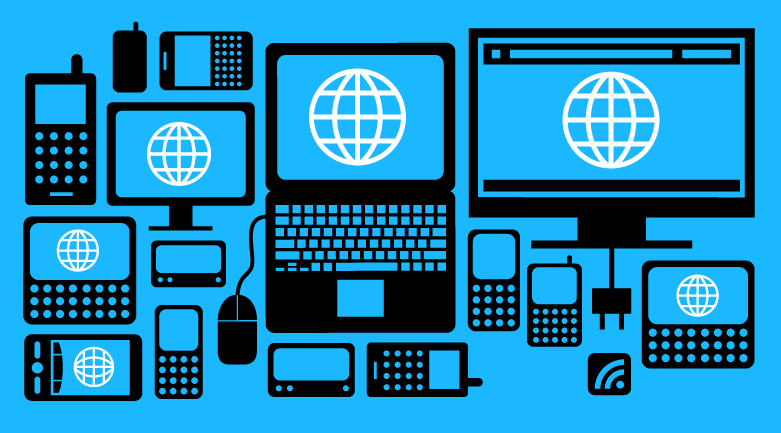Net Neutrality: What you need to know
December 18, 2017

On Thursday December 14, the Federal Communications Commission (FCC) repealed net neutrality. What does this mean? Net neutrality was established in the United States in 2015 by Former President Obama. Under net neutrality, all websites are treated equally; Internet providers cannot charge more or slow down particular content. With net neutrality repealed in a 3 to 2 vote by the FCC, nothing is certain. It will take some time before any changes are put in place but when they are, it will only help the Internet providers. Although these corporations would be making more money, the prices will likely not be too exorbitant — Google searches will not be $1.99 a search.
There are many ways Internet companies could take advantage of this repeal. One action they may take is charging websites more for faster downloading speeds. They could artificially throttle certain websites if they do not pay up. This would clearly target small businesses and non-profits. While Giganta Corps. is able to pay the fee to run their website at full speed, Small Inc. would not, resulting in them losing business to Giganta Corps. Another possibility is the Internet corporations charging their customers an up-charge for certain content. If you want to look on social media or stream videos from Netflix, your Internet provider could make you pay more. One last situation that could occur would be the blocking of certain websites. For example, AT&T owns Bing. It is incredibly likely that now that it is legal, they will block their users from searching with Google.
Although the FCC may have repealed net neutrality, all hope is not yet lost. Under the Congressional Review Act, Congress has 60 days that could overrule the repeal. Unfortunately, this would require either presidential support or backing from two-thirds of the House and Senate. Some technology companies plan on taking legal action, as well as many states. And if worse comes worse, if Democrats get back into power in the federal government, it is almost certain net neutrality would be reestablished.
Ultimately, the repeal of net neutrality was decided by a five person committee with one deciding vote. It was likely that special interest was behind the repeal, or at least party lines, because the only people who win at the end of the day with this repeal are the Internet providers.



